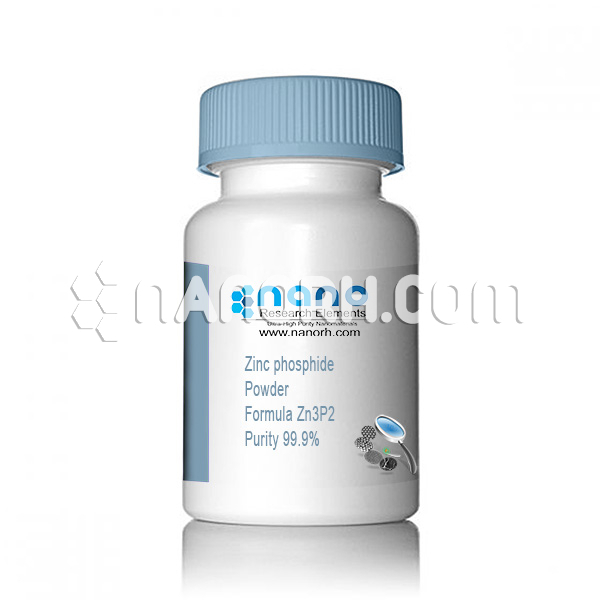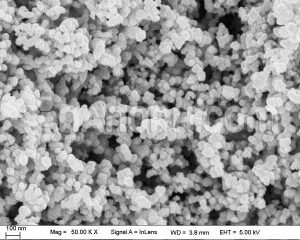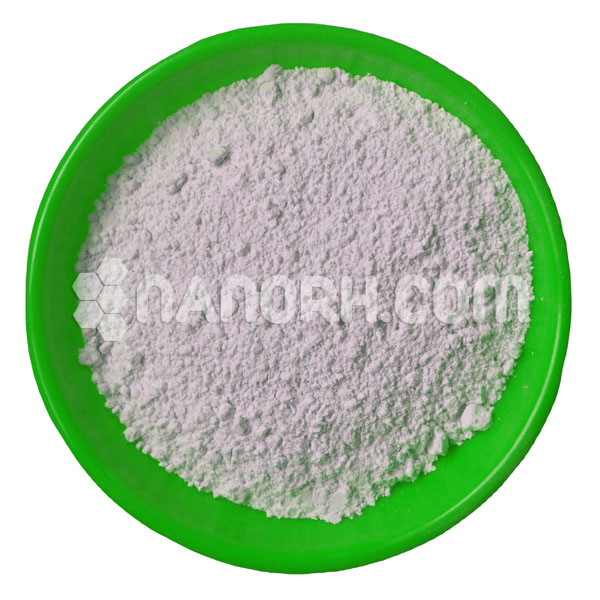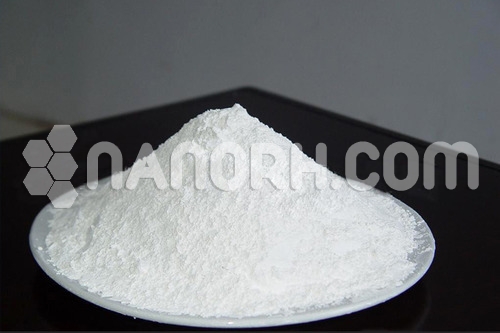| Zinc Phosphide Powder | |
| Product No | NRE-11293 |
| CAS No. | 1314-84-7 |
| Formula | Zn3P2 |
| APS | <40 µm (Can be Customized) |
| Purity | 99.9% |
| Color | Grey |
| Molecular Weight | 258.12 g/mol |
| Density | 4.55 g/cm³ |
| Melting Point | 420 °C |
| Boiling Point | 1,100 °C |
Zinc phosphide Powder
Applications
Rodenticide (Pest Control):
Zinc phosphide powder is most commonly known and used as a rodenticide for controlling rodents such as rats, mice, and squirrels. It works by releasing phosphine gas (PH₃) when it reacts with moisture in the stomachs of the rodents, causing poisoning. Phosphine gas disrupts cellular processes and leads to the death of the rodent.
Zinc phosphide is often incorporated into baits that are attractive to rodents, such as grains, seeds, or pellets. When rodents consume the bait, they are poisoned by the zinc phosphide compound.
The primary appeal of zinc phosphide as a rodenticide is its effectiveness in controlling rodent populations in both urban and agricultural settings, especially in areas where other rodent control methods have proven ineffective.
Electronics and Semiconductor Manufacturing:
Zinc phosphide is sometimes used in the electronics industry, particularly in the development of thin-film semiconductors and photoresistors. It can act as a semiconductor material, providing electrical conductivity properties that are useful in certain electronic components and sensors.
Zinc phosphide is used in the production of materials for photovoltaic cells and optical devices, where its ability to absorb light and conduct electricity can be harnessed in various solar energy applications.
Chemical Synthesis and Reactions:
Zinc phosphide can be used in chemical synthesis as a precursor for other phosphorus-containing compounds. It serves as a source of phosphorus in various chemical reactions, particularly in the synthesis of phosphine derivatives and other organophosphorus compounds, which are used in pharmaceuticals, pesticides, and flame retardants.
The compound is also utilized in certain high-temperature reactions involving phosphorus, such as in the production of phosphoric acid and phosphorus pentachloride.
Agricultural Pest Control:
Beyond being used as a rodenticide, zinc phosphide is sometimes employed to help control pests in agriculture. It can be used to manage certain pests that threaten crops and storage facilities. It is often a part of a comprehensive pest management plan to reduce crop damage caused by rodents and other pests in farming regions.
Its use is particularly important in controlling rodent populations that invade grain storage facilities, agricultural fields, and livestock areas, where traditional trapping or other non-chemical methods may not be as effective.




